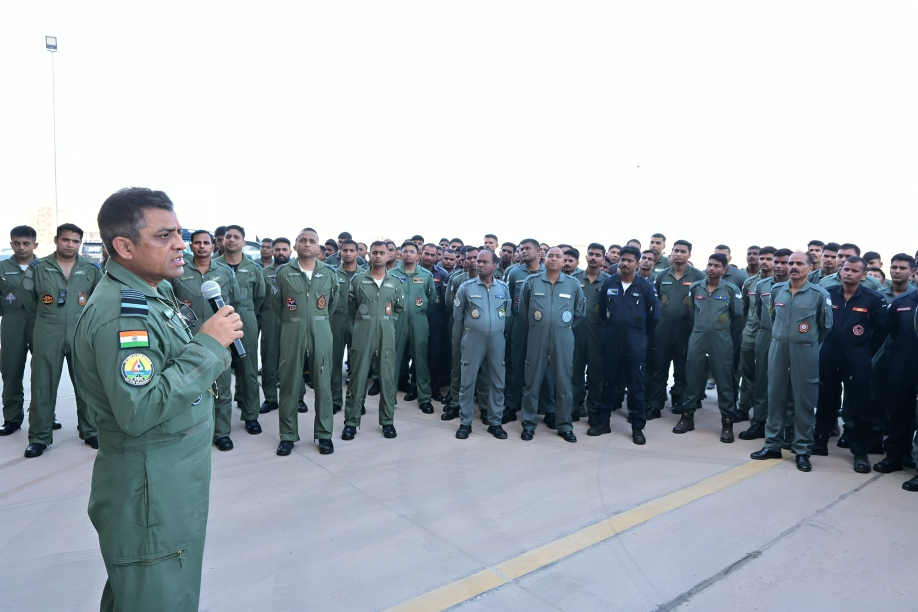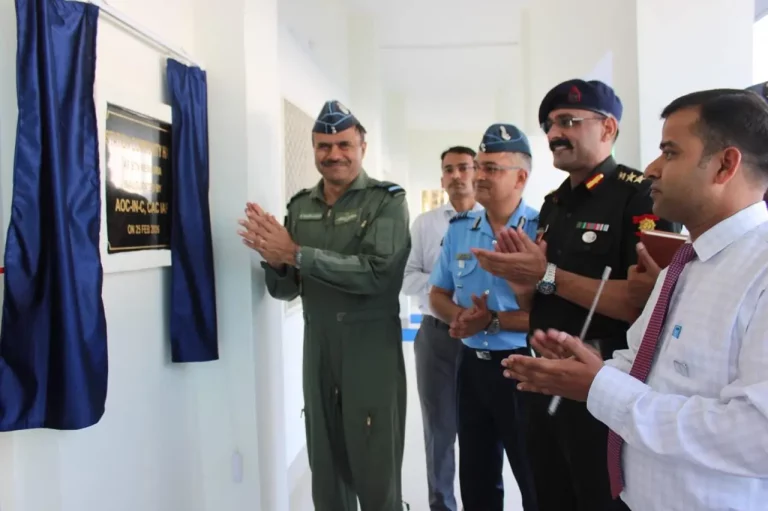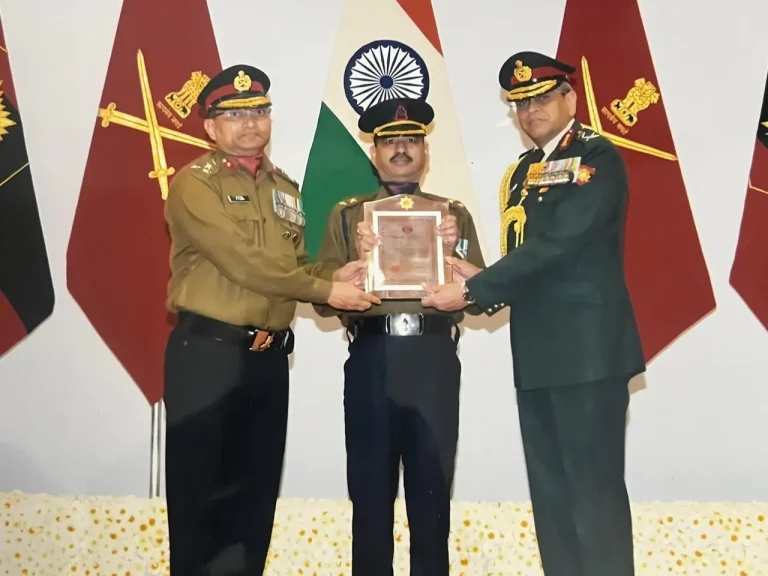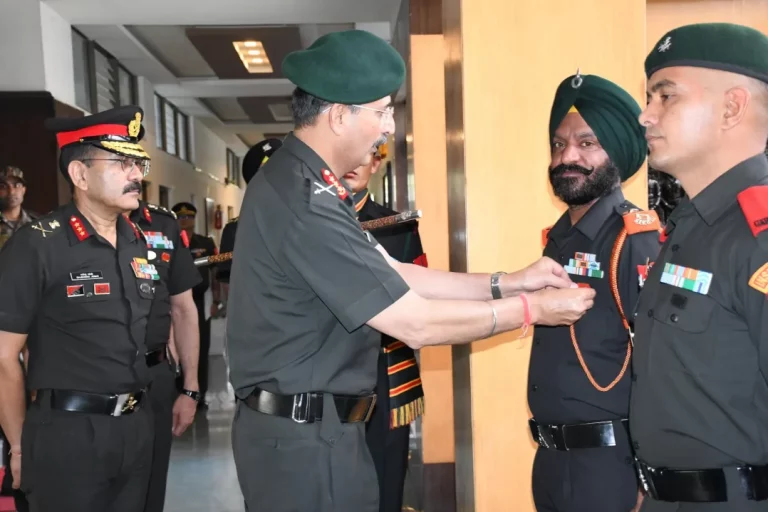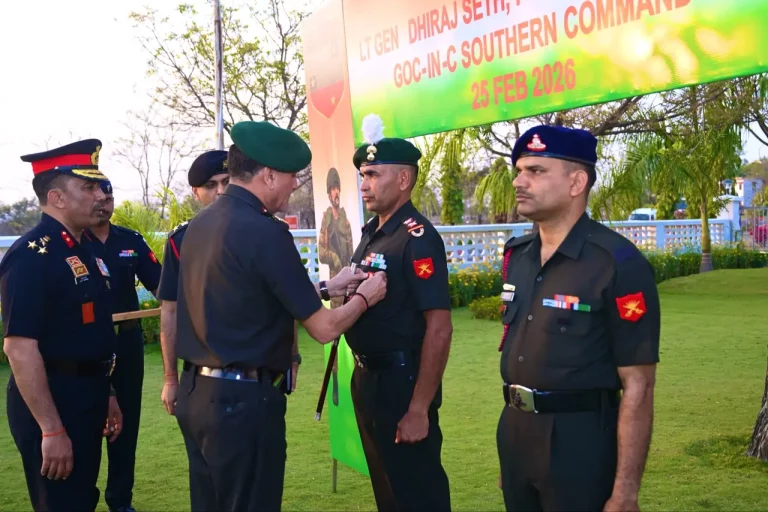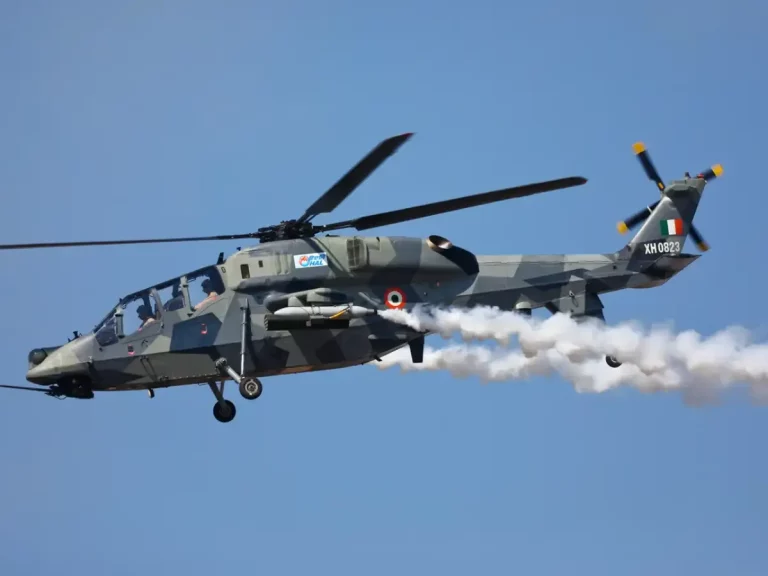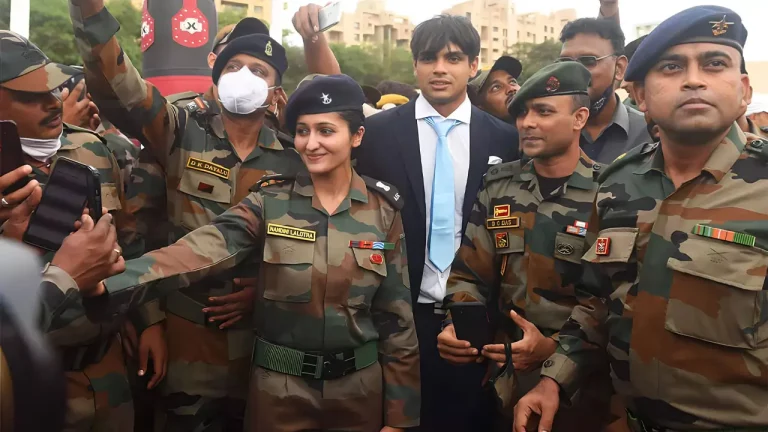Air Marshal Nagesh Kapoor, the Air Officer Commanding-in-Chief of the Indian Air Force’s South Western Air Command, conducted a strategic review of Operation Sindoor during his visit to forward airfields in Gujarat. This inspection follows India’s precision military response to a recent terror attack in Pahalgam on May 3, which claimed the lives of 13 individuals, including Navy officer Vinay Narwal.
Operation Sindoor, initiated on May 7, was described as a swift and calculated offensive aimed at dismantling terror infrastructure in Pakistan and Pakistan-occupied Kashmir (PoK). In a span of just 25 minutes, the Indian Air Force effectively neutralized nine high-value terrorist targets associated with notorious groups such as Jaish-e-Mohammad and Lashkar-e-Taiba. Among the key sites targeted was the Markaz Taiba in Muridke, Pakistan, a location historically linked to the infamous 2008 Mumbai attacks.
During his visit, Air Marshal Kapoor engaged in operational briefings and spoke directly with IAF personnel involved in the execution of the strikes. He praised their precision, bravery, and professionalism, describing the success of Operation Sindoor as a clear indicator of the IAF’s preparedness and evolving air strike capabilities.
The operation showcased advanced military hardware, including Harop and Harpy loitering drones, which conducted surgical strikes with remarkable accuracy. Complementing this was India’s indigenous Akash Surface-to-Air Missile (SAM) system, deployed at the airfields to safeguard Indian airspace. With 96% indigenous content, the Akash system proved vital in defending against potential retaliatory drone and missile strikes from Pakistan.
In addition, the Russian-origin S-400 air defense system successfully intercepted incoming threats targeting regions such as Jammu, Pathankot, and Udhampur, effectively preventing any damage on Indian soil. Reports indicate that approximately 100 terrorists were eliminated during the operation, marking a significant blow to terrorist networks operating in the region.
The political and public response to the operation has been markedly supportive. Defence Minister Rajnath Singh, while inaugurating 50 Border Roads Organisation (BRO) projects, emphasized that the state’s response was targeted at those responsible for civilian deaths. Maharashtra Deputy Chief Minister Eknath Shinde hailed the IAF’s actions, stating, “This is the new India — one that strikes back by entering enemy territory.”
Air Marshal Kapoor’s leadership during this pivotal period has received commendation, particularly given his extensive experience as a former Defence Attaché to Pakistan. His visit reassures the IAF’s operational readiness and strategic depth along the western front.
As cross-border shelling persists in sensitive sectors like Uri in Jammu & Kashmir, the Indian armed forces remain on high alert. Supported by advanced technology and a robust political commitment, India has conveyed a resolute message: acts of terrorism will not go unanswered.
